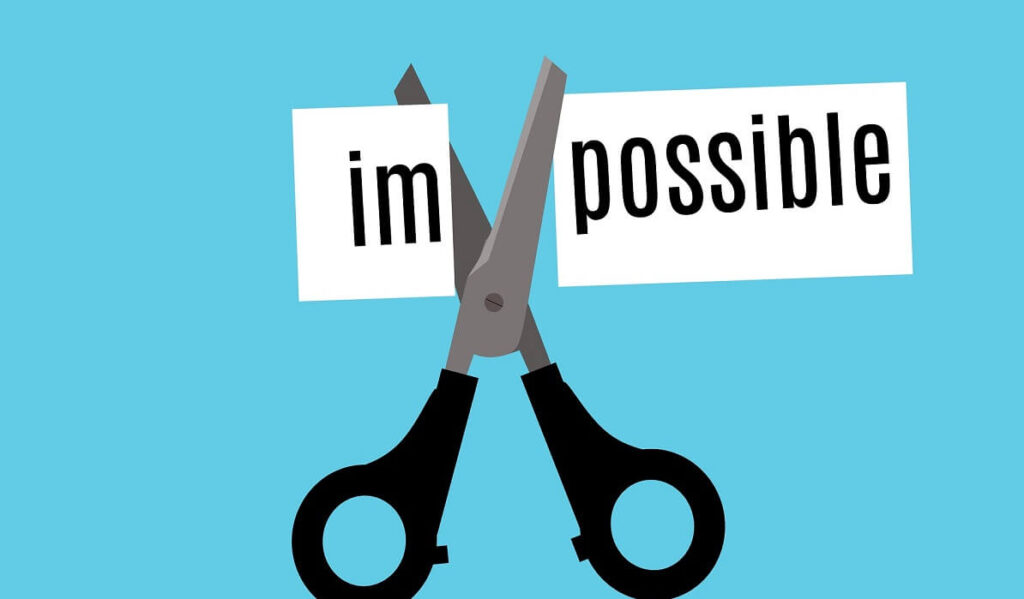Introduction
10 Best Habits to Make You Successful in Business: Starting a business can be both exciting and challenging. Whether you’re a seasoned entrepreneur or just starting out, success in business requires a combination of hard work, determination, and effective habits.
In this article, we’ll explore ten of the best habits that successful business owners and professionals have used to build and grow their businesses.
From cultivating a growth mindset to building a strong team, we’ll share practical tips and advice that you can implement to increase your chances of success in the business world. So, whether you’re just starting out or looking to take your business to the next level, read on to discover the best habits to make you successful in business.
- 1- Cultivating a Growth Mindset
- 2- Setting Goals and Prioritizing Tasks
- 3- Time Management
- 4- Developing Strong Communication Skills
- 5- Embracing Failure and Learning from Mistakes
- 6- Continuous Learning and Professional Development
- 7- Developing a Positive Attitude and Mindset
- 8- Taking Care of Your
- 9- Building a Strong Team and Delegating Effectively
- 10- Giving Back and Contributing to Your Community
- Conclusion
1- Cultivating a Growth Mindset

Are you struggling to stay motivated in your business or professional life? Do you find it difficult to adapt to changes and challenges that come your way? One of the best ways to overcome these obstacles is to cultivate a growth mindset. In this chapter, we’ll explore what a growth mindset is, how it differs from a fixed mindset, and share tips and techniques to help you develop a growth mindset.
What is a Growth Mindset?
At its core, a growth mindset is the belief that your abilities and qualities can be developed through hard work, dedication, and perseverance. This mindset is characterized by a willingness to learn from mistakes, embrace challenges, and take risks. Individuals with a growth mindset believe that they can improve and develop their skills and abilities through practice, feedback, and hard work.
On the other hand, a fixed mindset is the belief that your abilities and qualities are set in stone and cannot be changed. People with a fixed mindset tend to avoid challenges, shy away from risks, and view failure as a reflection of their abilities.
How to Develop a Growth Mindset
If you find yourself struggling with a fixed mindset, don’t worry – you can develop a growth mindset with the right strategies and techniques. Here are some tips to help you cultivate a growth mindset:
1. Embrace Challenges
Instead of avoiding challenges, embrace them as opportunities to learn and grow. When you face a difficult situation, ask yourself: “What can I learn from this experience?” or “How can I improve next time?” By reframing challenges in a positive light, you can train your brain to view them as opportunities for growth and development.
2. Practice Persistence
Developing a growth mindset requires persistence and perseverance. Instead of giving up when faced with setbacks, keep pushing forward and remind yourself that progress takes time. By persevering through challenges and setbacks, you’ll build resilience and develop a growth mindset.
3. Learn from Failure
One of the key tenets of a growth mindset is the belief that failure is an opportunity to learn and improve. When you experience a setback or failure, take the time to reflect on what went wrong and what you can do differently next time. By learning from your mistakes, you can develop new strategies and approaches to achieve success.
Read also:
- What is affiliate marketing | Complete guide 2023
- How to make Money from Instagram
- Review WhatsApp | WhatsApp Business VS WhatsApp
- What is Ecommerce | 2023 Update for Beginners
- Wix vs Shopify Comparison (2023) | Which Is Better For Online Store?
4. Emphasize Effort Over Ability
Instead of focusing on your innate abilities or talents, emphasize the effort and hard work you put into achieving your goals. By recognizing the role of hard work and perseverance in your success, you can develop a growth mindset and avoid the trap of a fixed mindset.
5. Surround Yourself with Growth-Minded People
Finally, surround yourself with people who have a growth mindset. Seek out mentors, colleagues, and friends who are positive, supportive, and focused on learning and development. By surrounding yourself with growth-minded people, you’ll be inspired to cultivate a growth mindset of your own.
Do you struggle to stay on top of your work or feel like you’re not making progress towards your goals? One of the key ways to overcome these challenges is to set goals and prioritize your tasks effectively. In this article, we’ll explore the importance of goal setting and task prioritization, and share tips and techniques to help you achieve success in your business or professional life.
2- Setting Goals and Prioritizing Tasks

Setting clear, actionable goals is essential for achieving success in any area of life. Goals provide direction, motivation, and a sense of purpose. When you set clear, specific goals, you’re more likely to stay focused, track your progress, and make steady progress towards your desired outcome.
How to Set Effective Goals
When it comes to setting effective goals, there are a few key principles to keep in mind. Here are some tips to help you set goals that will help you achieve success:
1. Be Specific
Your goals should be specific and measurable. Instead of setting a vague goal like “I want to grow my business,” try setting a specific goal like “I want to increase my customer base by 10% in the next quarter.”
2. Make it Attainable
Your goals should be realistic and achievable. Don’t set yourself up for failure by setting goals that are too ambitious or unrealistic. Instead, set goals that are challenging but attainable with hard work and dedication.
3. Break it Down
Break down your goals into smaller, actionable steps. This will help you track your progress, stay motivated, and avoid feeling overwhelmed by the enormity of your goal.
Why is Task Prioritization Important?
Effective task prioritization is essential for staying on top of your work, meeting deadlines, and achieving your goals. When you prioritize your tasks effectively, you’re more likely to be productive, focused, and achieve your desired outcomes.
How to Prioritize Your Tasks
Prioritizing your tasks effectively can be a challenge, especially if you have a lot on your plate. Here are some tips to help you prioritize your tasks effectively:
1. Identify Urgent vs. Important Tasks
Start by identifying tasks that are urgent versus tasks that are important. Urgent tasks are those that need to be done immediately, while important tasks are those that are essential for achieving your long-term goals.
2. Use a Task List
Create a task list and prioritize your tasks based on urgency and importance. Make sure to review and update your task list regularly to ensure you’re staying on track.
3. Focus on High-Impact Tasks
When you’re short on time or feeling overwhelmed, focus on high-impact tasks that will have the greatest impact on your goals.
3- Time Management

Do you feel like there aren’t enough hours in the day to get everything done? Are you constantly stressed and overwhelmed by your workload? The key to overcoming these challenges is effective time management. In this article, we’ll explore the importance of time management, and share tips and techniques to help you achieve success in your business or professional life.
Why is Time Management Important?
Time management is essential for achieving success in any area of life. When you manage your time effectively, you’re able to prioritize your tasks, stay on track, and avoid procrastination. Effective time management also helps you achieve a better work-life balance, reducing stress and improving your overall well-being.
How to Manage Your Time Effectively
Managing your time effectively can be a challenge, but with the right strategies and techniques, anyone can learn how to do it. Here are some tips to help you manage your time effectively and achieve success in your business or professional life:
1. Set Priorities
Start by setting clear priorities. Identify the most important tasks and projects, and focus your time and energy on those first. This will help you avoid wasting time on low-value activities and ensure you’re making progress towards your goals.
2. Create a Schedule
Create a schedule or a to-do list to help you stay on track. Block out time for specific tasks and projects, and set deadlines to help you stay focused and motivated.
3. Eliminate Distractions
Minimize distractions to help you stay focused and productive. Turn off your phone, close your email, and avoid multitasking. By eliminating distractions, you’ll be able to complete your work more efficiently and effectively.
4. Learn to Delegate
Learn to delegate tasks to others when possible. Delegating can help you free up time for high-priority tasks and projects, and also empower your team members to take on more responsibility and grow in their roles.
5. Take Breaks
Taking breaks is essential for maintaining focus and productivity. Schedule regular breaks throughout the day, and use them to recharge and refocus. This will help you avoid burnout and ensure you’re able to work at your best.
4- Developing Strong Communication Skills

In today’s fast-paced and interconnected world, effective communication is key to success in any field, especially in business. Developing strong communication skills can help you build better relationships with your clients, colleagues, and stakeholders, and can ultimately lead to increased productivity and success. Here are some strategies to help you improve your communication skills:
- Listen actively: Listening is an essential component of effective communication. When engaging with others, take the time to listen actively and ask questions to ensure you understand their perspective and needs.
- Speak clearly and concisely: When communicating verbally or in writing, be clear and concise in your message. Use simple, straightforward language and avoid technical jargon that may be confusing or misunderstood.
- Choose the right medium: With so many communication tools available, it’s important to select the most appropriate medium for each message. Email may be effective for formal communications, while a quick phone call or chat message may be more appropriate for a simple question or update.
- Practice empathy: Empathy is the ability to understand and relate to the feelings and perspectives of others. This is essential in building trust and strong relationships. Try to put yourself in the other person’s shoes and consider their perspective when communicating.
- Provide feedback: Constructive feedback is essential for growth and improvement. Providing feedback in a clear and supportive way can help your colleagues and employees to learn and grow.
By focusing on developing strong communication skills, you can build stronger relationships with your clients and colleagues, and ultimately increase your chances of success in business. Remember to practice active listening, speak clearly and concisely, choose the appropriate medium, practice empathy, and provide feedback to build a strong foundation of effective communication.
5- Embracing Failure and Learning from Mistakes

We all make mistakes in our personal and professional lives. However, it’s how we respond to these failures that defines our success. In this article, we’ll explore the importance of embracing failure and learning from mistakes, and share tips and techniques to help you achieve success in your business or professional life.
Why Embracing Failure is Important
Many people see failure as a setback or a reason to give up. However, failure is an essential part of the learning process. By embracing failure and learning from our mistakes, we gain valuable insights and experience that help us grow and improve. When we learn from our mistakes, we’re better equipped to handle challenges, adapt to change, and achieve success.
How to Embrace Failure and Learn from Mistakes
Embracing failure and learning from mistakes can be challenging, but with the right mindset and strategies, anyone can do it. Here are some tips to help you embrace failure and learn from your mistakes:
1. Shift Your Mindset
Instead of seeing failure as a negative experience, try to view it as an opportunity for growth and learning. Embrace the idea that failure is a natural part of the learning process, and that each failure brings you one step closer to success.
2. Analyze Your Mistakes
Take the time to analyze your mistakes and understand what went wrong. Ask yourself what you could have done differently, and what you can learn from the experience. This will help you identify areas for improvement and prevent similar mistakes in the future.
3. Seek Feedback
Seek feedback from others to gain a different perspective on your mistakes. This can help you identify blind spots and gain new insights into your approach. Be open to constructive criticism and use it to guide your future actions.
4. Take Action
Once you’ve identified areas for improvement, take action to make changes. Use what you’ve learned to refine your approach and improve your performance. This will help you grow and achieve greater success over time.
6- Continuous Learning and Professional Development

Continuous learning and professional development are essential for staying ahead in today’s fast-paced business environment. Whether you’re an entrepreneur or a seasoned professional, investing in your education and skills is crucial for achieving success and maintaining a competitive edge. In this article, we’ll explore the principles of continuous learning and share actionable tips to help you prioritize your professional development and achieve your goals.
The Importance of Continuous Learning
Continuous learning is the process of actively seeking out new knowledge and skills to improve your personal and professional development. In today’s rapidly changing business landscape, it’s more important than ever to stay ahead of the curve and continuously learn and grow. By investing in your education and skills, you can enhance your capabilities, increase your value to your organization, and achieve greater success.
Tips for Prioritizing Professional Development
Here are some tips for prioritizing your professional development and making continuous learning a part of your daily routine:
1. Set Goals
Start by setting clear, measurable goals for your professional development. This will help you stay focused and motivated, and ensure that you’re making progress towards your objectives.
2. Create a Plan
Once you’ve set your goals, create a plan for achieving them. This may involve taking courses, attending conferences, reading books, or working with a mentor. Identify the resources and support you need to achieve your goals, and create a plan for incorporating professional development into your daily routine.
3. Make Time
Make professional development a priority by carving out time in your schedule for learning and growth. This may involve scheduling time for reading, attending classes, or working on specific projects. Treat professional development as an important part of your workday and make it a non-negotiable activity.
4. Seek Out Opportunities
Take advantage of every opportunity to learn and grow, both inside and outside of your organization. Attend conferences, seminars, and networking events, and seek out mentorship and coaching opportunities. Look for ways to expand your skill set and knowledge base, and be open to new experiences and challenges.
5. Reflect and Evaluate
Finally, take time to reflect on your progress and evaluate your results. Review your goals and assess your achievements, and identify areas for improvement. Use this feedback to refine your approach and make continuous learning a part of your ongoing professional development.
7- Developing a Positive Attitude and Mindset

In business, your attitude and mindset can play a crucial role in determining your success. A positive attitude can help you overcome challenges, stay motivated, and foster a can-do spirit that inspires those around you. Here are some tips for developing a positive attitude and mindset that can take your business to the next level:
- Focus on the good: It’s easy to get bogged down by negative events, but try to focus on the good things that happen. Celebrate your successes, no matter how small, and take time to reflect on your accomplishments. This will help you stay motivated and see the potential in your business.
- Surround yourself with positivity: Your environment can have a big impact on your attitude. Surround yourself with positive, supportive people who believe in you and your business. Avoid negative influences and toxic people who can bring you down.
- Practice gratitude: Take time to appreciate the good things in your life and business. Make a list of things you’re grateful for and focus on them regularly. This will help you maintain a positive mindset and keep you motivated.
- Embrace challenges: Rather than seeing challenges as roadblocks, try to embrace them as opportunities to learn and grow. A positive attitude can help you see the potential in difficult situations and find creative solutions to problems.
- Take care of yourself: Your physical and mental health are crucial to maintaining a positive attitude. Make sure to take time for self-care activities that help you relax and recharge. This can include exercise, meditation, or spending time with loved ones.
By developing a positive attitude and mindset, you can create a business culture that fosters creativity, innovation, and growth. It’s a powerful tool for success that can help you achieve your goals and inspire others to do the same.
8- Taking Care of Your

In the fast-paced world of business, it’s easy to prioritize work over your own health and well-being. However, taking care of yourself is critical to your long-term success and overall happiness. Here are some strategies to help you prioritize your health and well-being in the context of a busy business schedule:
- Make time for physical activity: Exercise is essential for both physical and mental health. It can help reduce stress and anxiety, improve mood, and increase energy levels. Try to incorporate some form of physical activity into your daily routine, such as a brisk walk during lunch or a morning yoga session.
- Prioritize sleep: A good night’s sleep is critical for optimal health and productivity. Aim for 7-8 hours of sleep per night and try to establish a consistent sleep schedule to ensure you get the rest your body needs.
- Manage stress: Stress is an inevitable part of any busy work schedule, but it’s important to manage it effectively to prevent burnout. Find stress-reducing activities that work for you, such as meditation, deep breathing exercises, or a hobby that you enjoy.
- Eat a healthy diet: A well-balanced diet is essential for optimal health and energy levels. Try to prioritize nutrient-dense foods such as fruits, vegetables, lean proteins, and whole grains, and avoid processed foods and excessive sugar and caffeine.
- Take breaks: Taking breaks throughout the day can help you maintain focus and energy levels. Try to step away from your desk for a few minutes every hour, or take a longer break for lunch to recharge.
Prioritizing your health and well-being can ultimately lead to increased productivity, better decision-making, and overall success in business. By making time for physical activity, prioritizing sleep, managing stress, eating a healthy diet, and taking breaks, you can improve your physical and mental well-being, and ensure you are operating at your best. Remember that taking care of yourself is not a luxury, it’s a necessity for long-term success and happiness.
9- Building a Strong Team and Delegating Effectively

As a business owner, you may feel like you have to do everything yourself to ensure that everything is done the right way. However, delegating tasks and building a strong team can actually help your business grow and thrive. In this chapter, we will explore the benefits of building a strong team and delegating effectively, and provide you with some tips for doing so.
Why Building a Strong Team is Important
A strong team can be the backbone of a successful business. When you have a team that is working together towards a common goal, you can accomplish more in less time. In addition, a strong team can help you identify and address any weaknesses in your business, and provide you with valuable feedback and insights.
One of the biggest benefits of having a strong team is that it can help you manage your workload more effectively. When you have a team of competent and reliable people working with you, you can delegate tasks to them, which frees up your time to focus on other important aspects of your business. This can help you avoid burnout and ensure that you are using your time and energy in the most productive way possible.
Delegating Effectively
Delegating tasks is an important part of building a strong team. However, it’s not enough to simply hand off tasks to your team members and expect them to do everything perfectly. To delegate effectively, you need to take the time to ensure that your team members understand the task at hand, and that they have the necessary skills and resources to complete it successfully.
Here are some tips for delegating effectively:
- Clearly communicate the task: When you delegate a task, make sure that you communicate the task clearly and provide your team member with all the necessary information. This includes the desired outcome, any specific instructions, and any deadlines that need to be met.
- Set expectations: Clearly communicate what you expect from your team member in terms of quality, timeliness, and other important factors. This will help them understand what is expected of them, and help them to focus on meeting those expectations.
- Provide resources and support: Make sure that your team member has all the resources they need to complete the task successfully, including any tools, information, or support they may need. This will help them feel confident in their ability to complete the task successfully.
- Provide feedback: Provide your team member with regular feedback on their performance. This will help them to improve their skills and ensure that they are meeting your expectations.
Building a Strong Team
Building a strong team takes time and effort, but it’s worth it in the long run. Here are some tips for building a strong team:
- Hire the right people: When you are hiring, make sure that you are hiring people who are a good fit for your team and your business. This means looking for people who have the necessary skills and experience, as well as the right attitude and work ethic.
- Foster a positive work environment: A positive work environment is key to building a strong team. This means promoting open communication, providing opportunities for professional development, and creating a culture of respect and collaboration.
- Provide opportunities for growth: Provide your team members with opportunities to grow and develop their skills. This can include training, mentoring, and other forms of professional development.
- Recognize and reward success: Make sure to recognize and reward your team members for their hard work and successes. This will help to build morale and motivation, and encourage your team to continue working towards your business goals.
10- Giving Back and Contributing to Your Community

As a business owner or entrepreneur, it’s easy to get caught up in the day-to-day tasks of running a company. However, one important aspect of success that should not be overlooked is giving back and contributing to your community. Not only is it a great way to help others, but it can also benefit your business in numerous ways.
1- Increased Brand Awareness and Reputation
By giving back to your community, you are showing that you care about more than just making a profit. This can help to build a positive reputation for your brand, which can ultimately lead to increased customer loyalty and sales.
2- Networking and Relationship Building
Community involvement can also provide opportunities for networking and building relationships with other businesses and individuals in your industry. This can lead to new partnerships and collaborations that can benefit your business.
3- Employee Engagement and Morale
Encouraging your employees to get involved in community initiatives can help to improve their job satisfaction and morale. It can also provide opportunities for team building and skill development.
4- Personal Fulfillment
Contributing to your community can be a rewarding and fulfilling experience on a personal level. It allows you to make a positive impact on the world around you and can help you feel more connected to your community.
5- Tax Benefits
Many charitable contributions can be tax deductible, which can provide financial benefits for your business.
Conclusion
In conclusion, developing the right habits is essential to achieving success in business. The ten principles covered in this article provide a solid foundation for anyone looking to build a successful career or business.
Cultivating a growth mindset and a positive attitude helps you stay motivated, adaptable, and resilient in the face of challenges. Setting clear goals and prioritizing tasks helps you stay focused and productive. Effective time management allows you to make the most of your limited time and resources.
Embracing failure and learning from mistakes is critical to growth and improvement, and continuous learning and professional development helps you stay relevant and up-to-date in a rapidly changing world. Taking care of your health and well-being is vital to maintaining the energy and focus needed for sustained success.
Strong communication skills and the ability to build a strong team and delegate effectively are essential for any leader. And finally, giving back to your community is not only the right thing to do, but it also helps you build a positive reputation and make a meaningful impact on the world.
By incorporating these principles into your daily habits and routines, you can create a path to success in business and in life. Remember that success is a journey, not a destination, and that developing the right habits and mindset is crucial to enjoying the journey and achieving your goals.
















